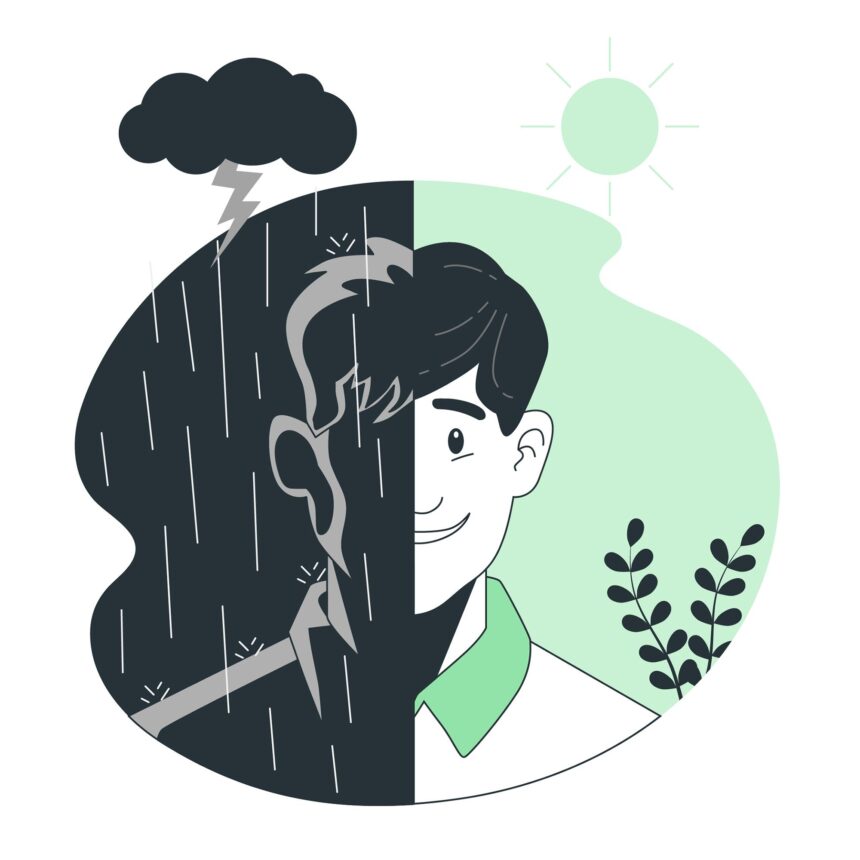Introduction: Seasonal Affective Disorder (SAD) is a type of depression that typically occurs during the colder months when sunlight exposure decreases. Although SAD is commonly associated with regions experiencing long, dark winters, it can also affect individuals living in South Africa, where the seasonal changes are less drastic. In this South African Men’s Health Guide, we will explore coping strategies specifically tailored to help South African men combat Seasonal Affective Disorder and maintain their mental well-being.
Understanding Seasonal Affective Disorder: Seasonal Affective Disorder is characterized by recurrent episodes of depression that occur during specific seasons, most commonly winter. The exact causes of SAD are still not fully understood, but researchers believe it is linked to reduced exposure to sunlight, leading to disruptions in the body’s internal clock and a decrease in serotonin levels.
Signs and Symptoms: SAD can manifest in a variety of ways, including:
- Persistent feelings of sadness, irritability, or anxiety.
- Loss of interest in activities usually enjoyed.
- Low energy levels and increased fatigue.
- Changes in appetite, including cravings for carbohydrates and weight gain.
- Difficulty concentrating or making decisions.
- Social withdrawal and decreased interest in social interactions.
- Sleep disturbances, such as insomnia or oversleeping.
Coping Strategies for South African Men: Living in South Africa, where the seasonal changes are less pronounced, can pose unique challenges when it comes to managing SAD. However, there are several strategies that South African men can employ to alleviate symptoms and improve their mental well-being:
- Maximize sunlight exposure: Even in milder climates, sunlight is crucial for combating SAD. Make an effort to spend time outdoors during daylight hours, especially in the morning. Open curtains or blinds to let natural light into your home or office.
- Stay active: Regular exercise has been proven to boost mood and increase energy levels. Engage in physical activities you enjoy, such as jogging, swimming, cycling, or playing sports. Consider joining a gym or exercise group to stay motivated and maintain a routine.
- Create a daily routine: Establishing a consistent daily routine can help regulate your body’s internal clock and provide a sense of stability. Wake up and go to bed at the same time each day, and incorporate activities that bring you joy and relaxation into your schedule.
- Seek social support: SAD can be isolating, making it crucial to maintain social connections. Engage in activities with friends and family, join clubs or community groups, or seek professional support through therapy or support groups.
- Light therapy: Light therapy is a proven treatment for SAD. Although the South African climate is generally sunnier, using a light therapy box or lamp can provide additional exposure to bright light, which can help regulate mood and improve symptoms. Consult with a healthcare professional to determine the most suitable light therapy options.
- Mindfulness and relaxation techniques: Practicing mindfulness, meditation, and deep breathing exercises can reduce stress and improve mental well-being. Consider incorporating these techniques into your daily routine to manage SAD symptoms effectively.
- Dietary considerations: Adopting a healthy diet can have a positive impact on mood. Incorporate foods rich in omega-3 fatty acids, such as fatty fish, flaxseeds, and walnuts, as they have been linked to improved mental health. Limit processed foods, sugary snacks, and excessive caffeine intake, as they can exacerbate mood swings and energy crashes.
- Consult a healthcare professional: If symptoms persist or significantly affect your daily life, it is essential to seek professional help. A healthcare provider can evaluate your condition and recommend appropriate treatment options, including therapy or medication if necessary.
Conclusion: While South Africa may not experience extreme winters, Seasonal Affective Disorder can still affect men living in the country. By implementing these coping strategies, South African men can effectively manage their symptoms and maintain good mental health throughout the year. Remember, seeking support from healthcare professionals, friends, and family is crucial in navigating the challenges of Seasonal Affective Disorder and improving overall well-being.










